
The road of Ukrainian New York
It is rare to see Fetsitsa at home, so the possibility of talking to her is really a happy accident. Thousands of kilometers, hundreds of aid boxes, and dozens of meetings with defenders define her life.
"I sometimes spend more time at the front line than the soldiers. I have to be where there are constant explosions. It's horrifying. Everyone is afraid. Everyone wants to live. But I'm going there because I must deliver what is necessary to the positions."
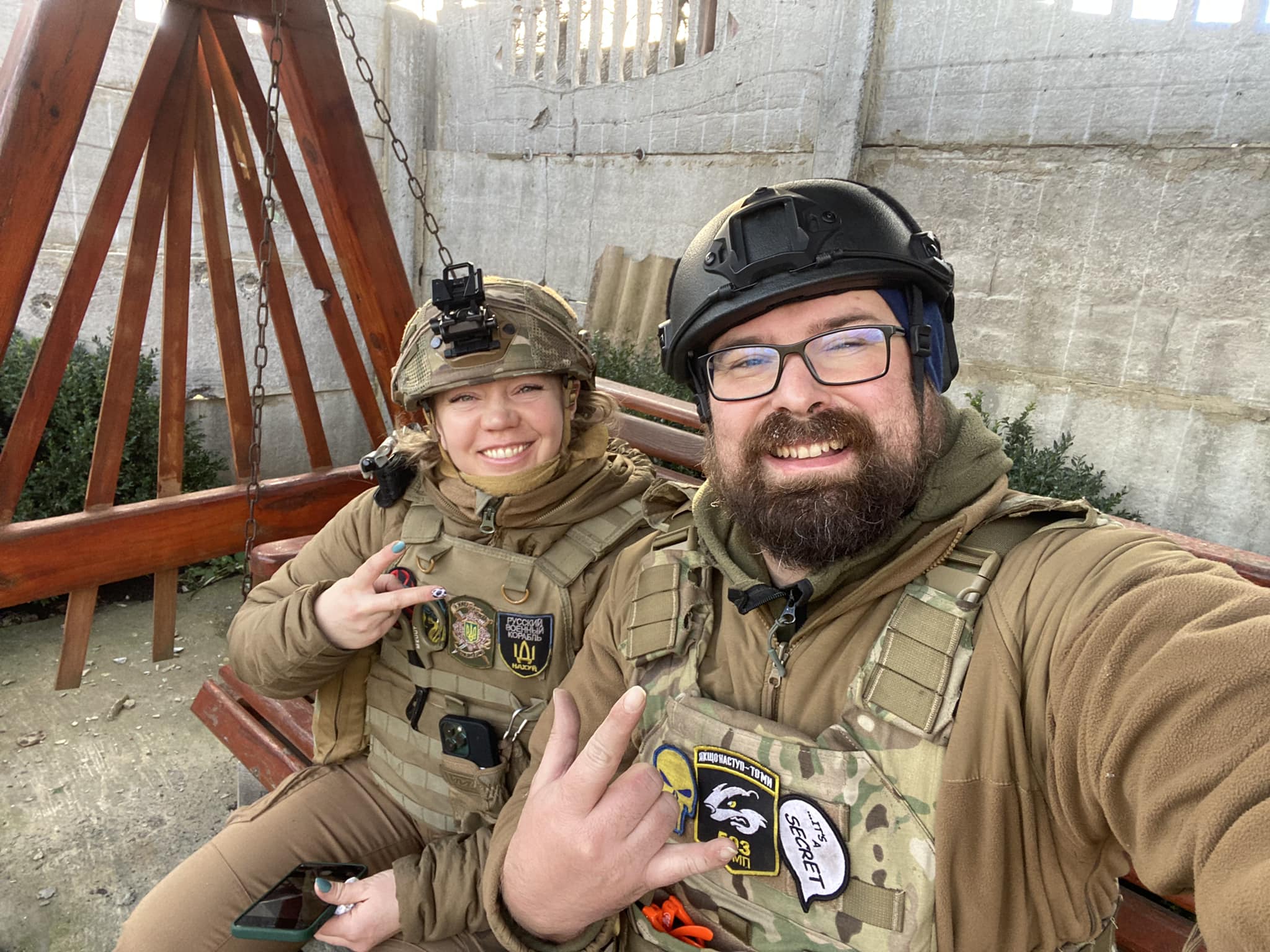
Khrystyna Fetsitsa with Taras Herman. Photo: Fetsitsa's personal archive
With Taras Herman, a volunteer of the Logistic Center for Assistance to ATO/JFO fighters, Fetsitsa has just returned from Ukrainian New York in the Donetsk region. Volunteers deliver aid to defenders as closely as possible. They never reached Bakhmut: a rear-wheel-drive bus couldn't pass through broken roads and swamps. This is probably a design of fate because the volunteers managed to take the wounded soldier to the hospital on the way.
"It was unexpected, but I'm glad we went. Frightened and full of horror, the defender called for help for his wounded comrade. Although such a situation happens not the first time, it is impossible to prepare for it," says the volunteer.
Sashko, that was the soldier's name received a severe wound to the head. Instead of the spring breeze — the whistling of artillery, instead of an eye — a hole. The doctors were surprised how the volunteers dared to transport the soldier in such a condition because it is a significant risk, but Fetsitsa admits: they did not think what would happen. They just had to help.
"I raced, honked at everyone, and turned on the emergency siren. Taras looked for a nearby hospital and contacted the soldiers' military unit. The road was bad. All the way, I prayed that we were on time. Now Sashko is in a coma: he lost an eye, but not his life," says the volunteer.
Fetsitsa communicates a lot with the defenders and says there are hundreds of such cases. Every day, soldiers look into the eyes of death and recover from brutal battles on the front lines. Weeks earlier, a volunteer handed over a car to one of the units, and within a few days, the soldiers shared that russian invaders had fired upon it. Fortunately, everything is fine with the unit. Fetsitsa plunges headfirst into the flow of charity, so every such incident, every loss gets deeply stuck— there is nowhere to escape from it. It is always in front of her eyes.
Cycle of help
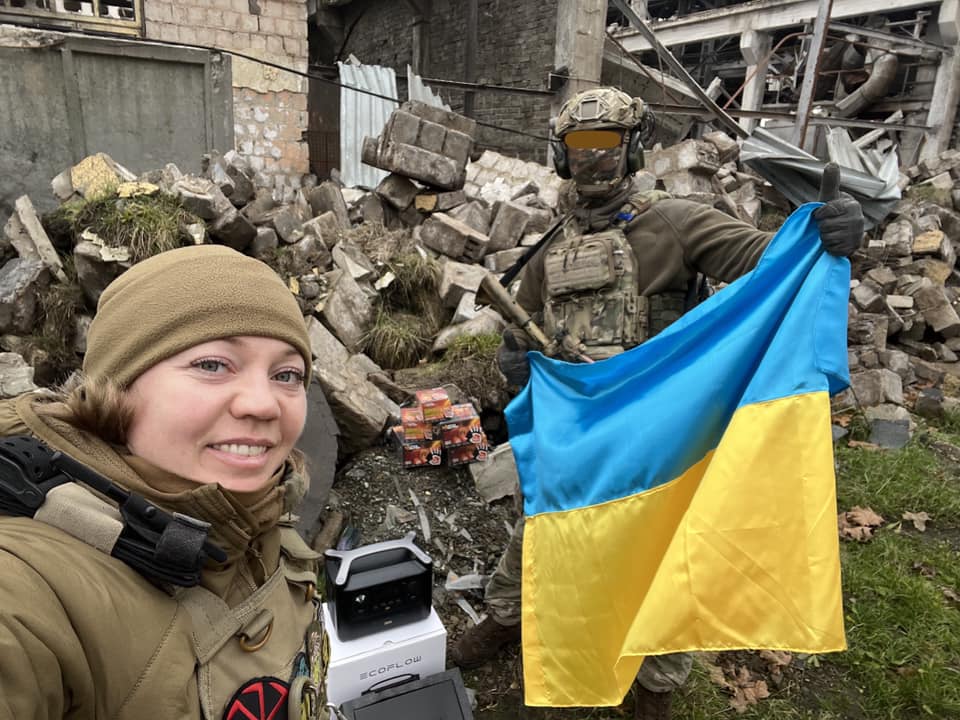
Photo: Fetsitsa's personal archive
Fetsitsa has been volunteering since the end of 2013. Her youth was frozen between revolutions and war. With the beginning of russia's armed aggression against Ukraine in 2014, she co-founded the Logistic Center for Assistance to ATO/JFO fighters. This volunteer association has gathered active and caring people in Ternopil for nine years.
"I will never forget how I started volunteering in the logistics center: a huge room, many people, and considerable help. I wasn't on the front line then, and every time I asked to go, I was rejected because of my gender. I was annoyed because I volunteered at the same level. Even when everyone was returning home, I continued to work," Fetsitsa recalls.
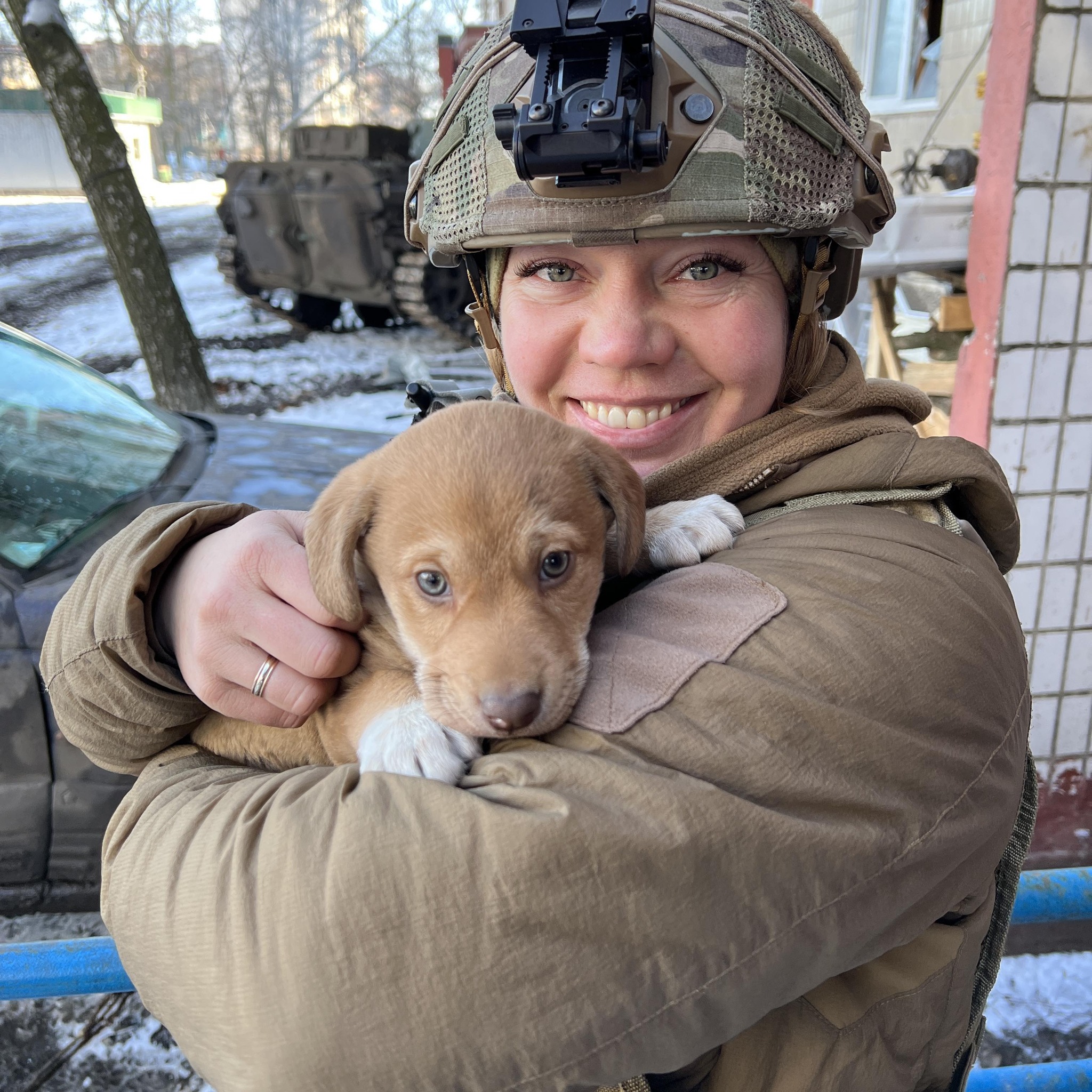 Photo: Fetsitsa's personal archive
Photo: Fetsitsa's personal archive
Nevertheless, the volunteer reached the forefront in November 2014 to deliver medical aid to the defenders. Fetsitsa did not say anything to her relatives not to worry them. She lied that she was going to Artemivsk (now Bakhmut), but in fact, her route was to Debaltseve, which at that time was heavily shelled by the russian military with Grads and Uragans multiple rocket launchers.
"When my husband could not contact me, he realized I was far from Bakhmut or another peaceful place. Only after coming home, I told the truth. Danger, explosions, wounded — these were my first impressions of a real war," says the volunteer.
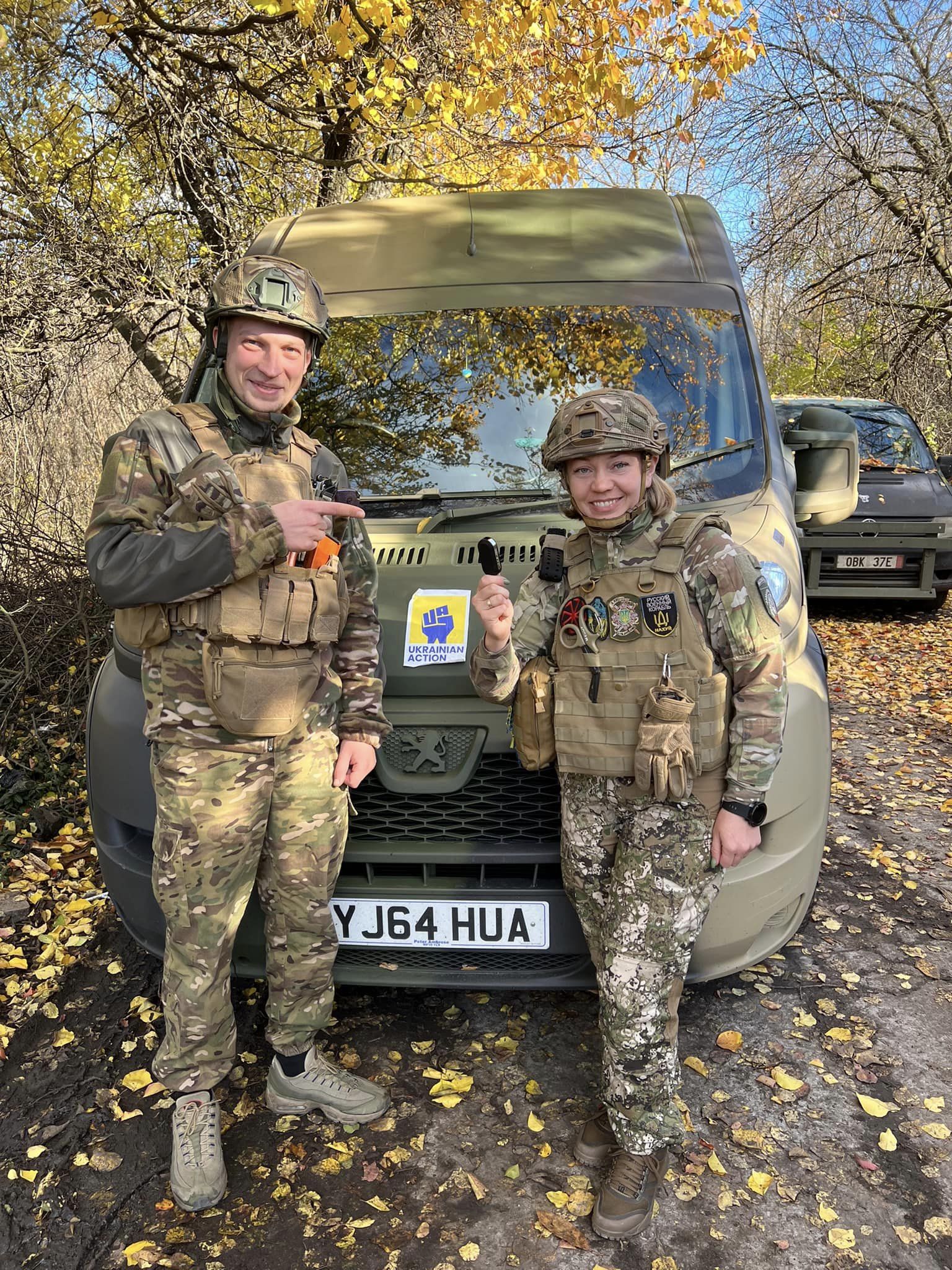
Photo: Fetsitsa's personal archive
With the team of the logistics center and her husband, the volunteer sent hundreds of items of medicine, ammunition, food, transport, quadcopters, and surveillance equipment. Cars for fighters are filled to the brim with goodies and useful things. As Fetsitsa shares, these strong and fearless warriors, like all others, are children at heart. They appreciate such little things, impatiently waiting to open the car and look inside.
"My husband and I are very responsible about this. We carefully prepare and equip special vehicles and occasionally repair and paint cars before sending them to the front," the volunteer told Rubryka. "We consider the purpose of the unit, the area, the landscape. Sometimes there are not enough resources to cover everything and provide for everyone, so we borrow, ask, give — and so on in a circle. Despite this, it is nice that people trust us, help and continue to support defenders."
Don't stray from your path
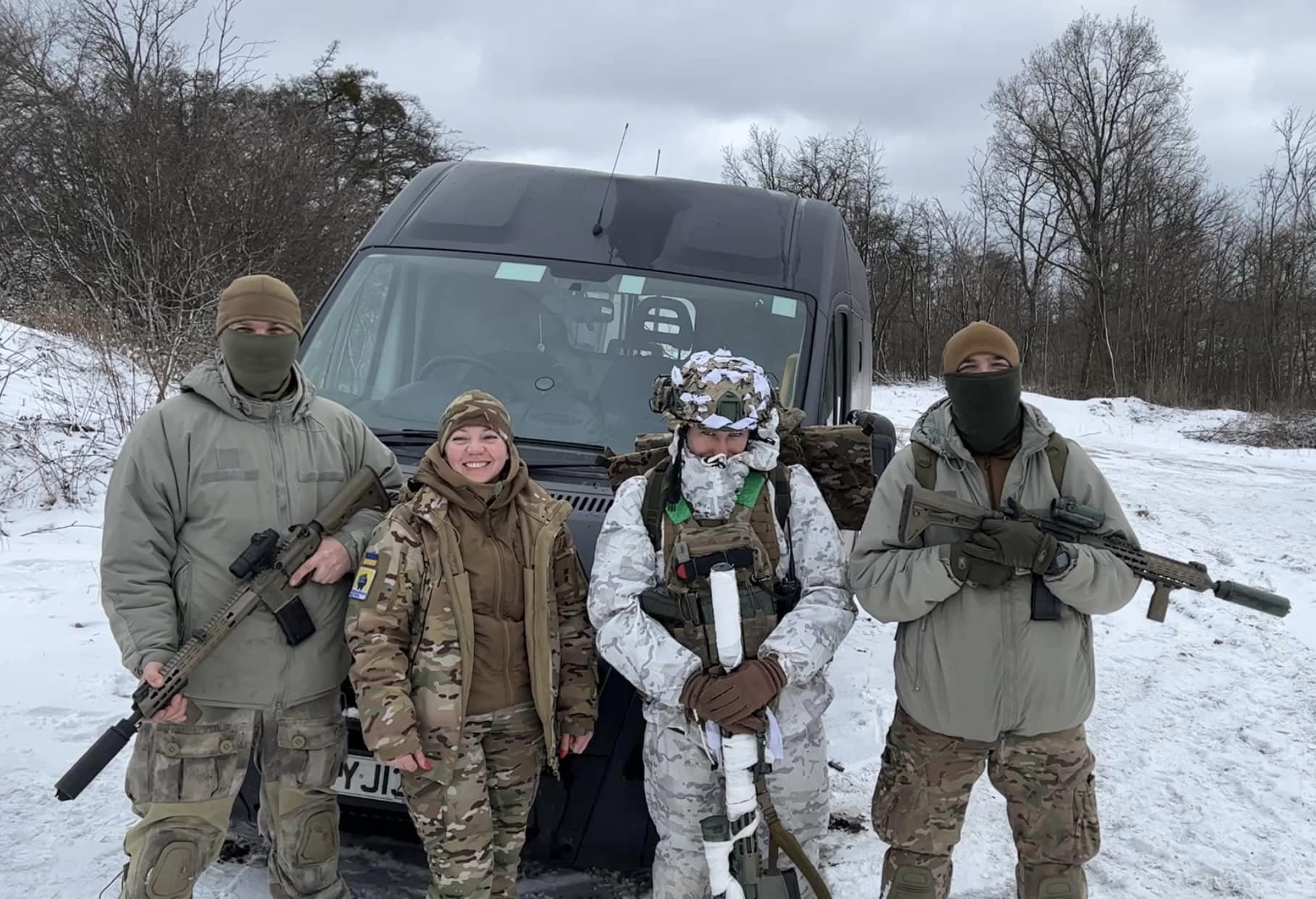
Photo: Fetsitsa's personal archive
In December 2022, the volunteer received the "Golden Heart" award from the President of Ukraine. It is awarded to volunteers for active assistance to the armed forces. About this and every other award, Fetsisia immediately notes that it is not her award but those helping her, donating, and joining charitable initiatives. Fetsisia's family has never forced her to stop volunteering, no matter how dangerous it is. They know she won't listen.
"I am very grateful to my family for their support. When I go to the front line, my mother is awake, praying. She keeps checking when I was last online. I assure her everything is fine, but I don't always tell the truth because she will worry even more," the volunteer shares.
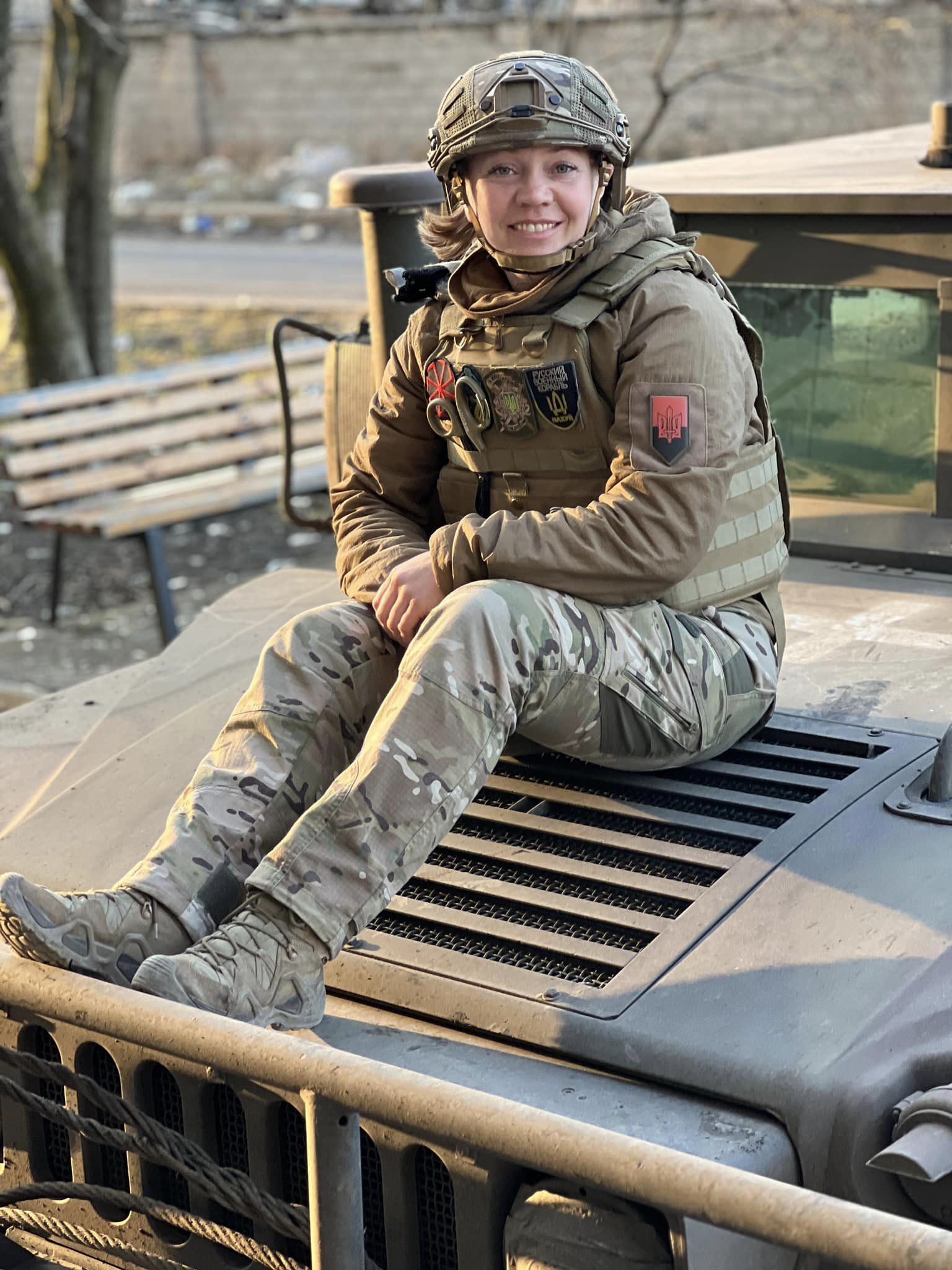
Photo: Fetsitsa's personal archive
Flags with commanders' signatures and combat chevrons with slogans, drawings, or other symbols remind her of every day of the volunteer's painstaking work. Fetsisia says that she remembers every gift and its history: this would be enough for several books about life between the wars. On the previous trip, she also received a gift from two units — battle flags:
"All this is in a visible place: every flag signed by the soldiers, every chevron donated. They personify the good energy of our defenders. Looking at them, I recover from exhausting trips," Fetsisia continues. "Every time I touch the shelves, new emotions emerge about people, circumstances, and the war. This is a chronicle of life and charity over the past nine years."
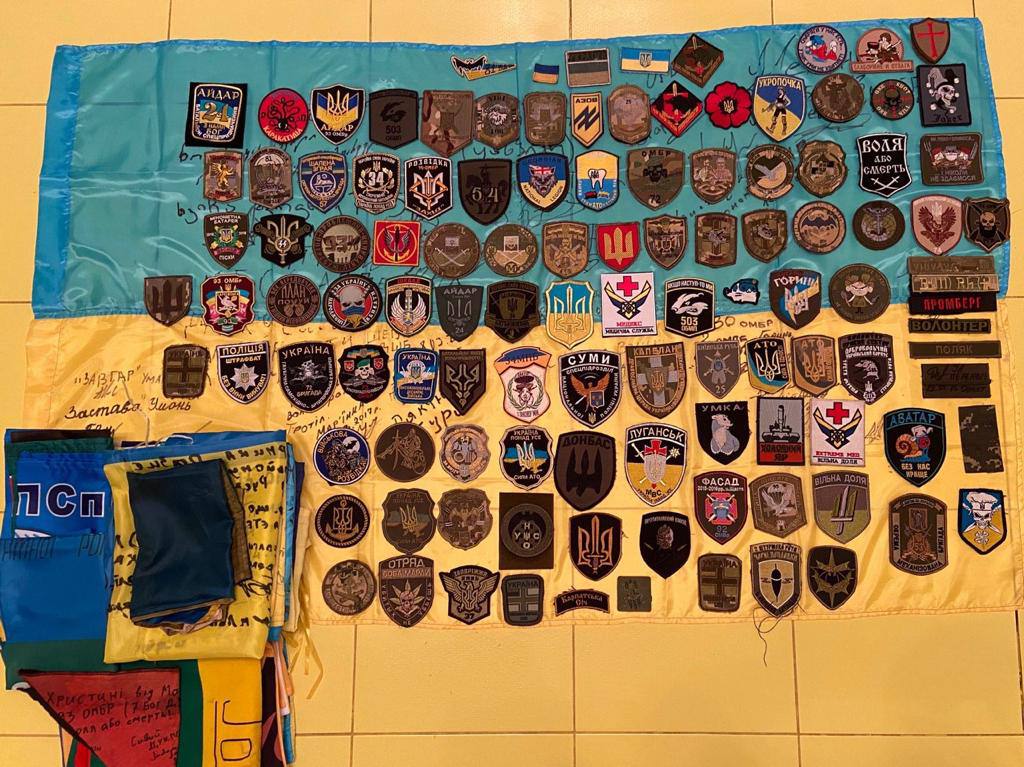
Photo: Fetsitsa's personal archive
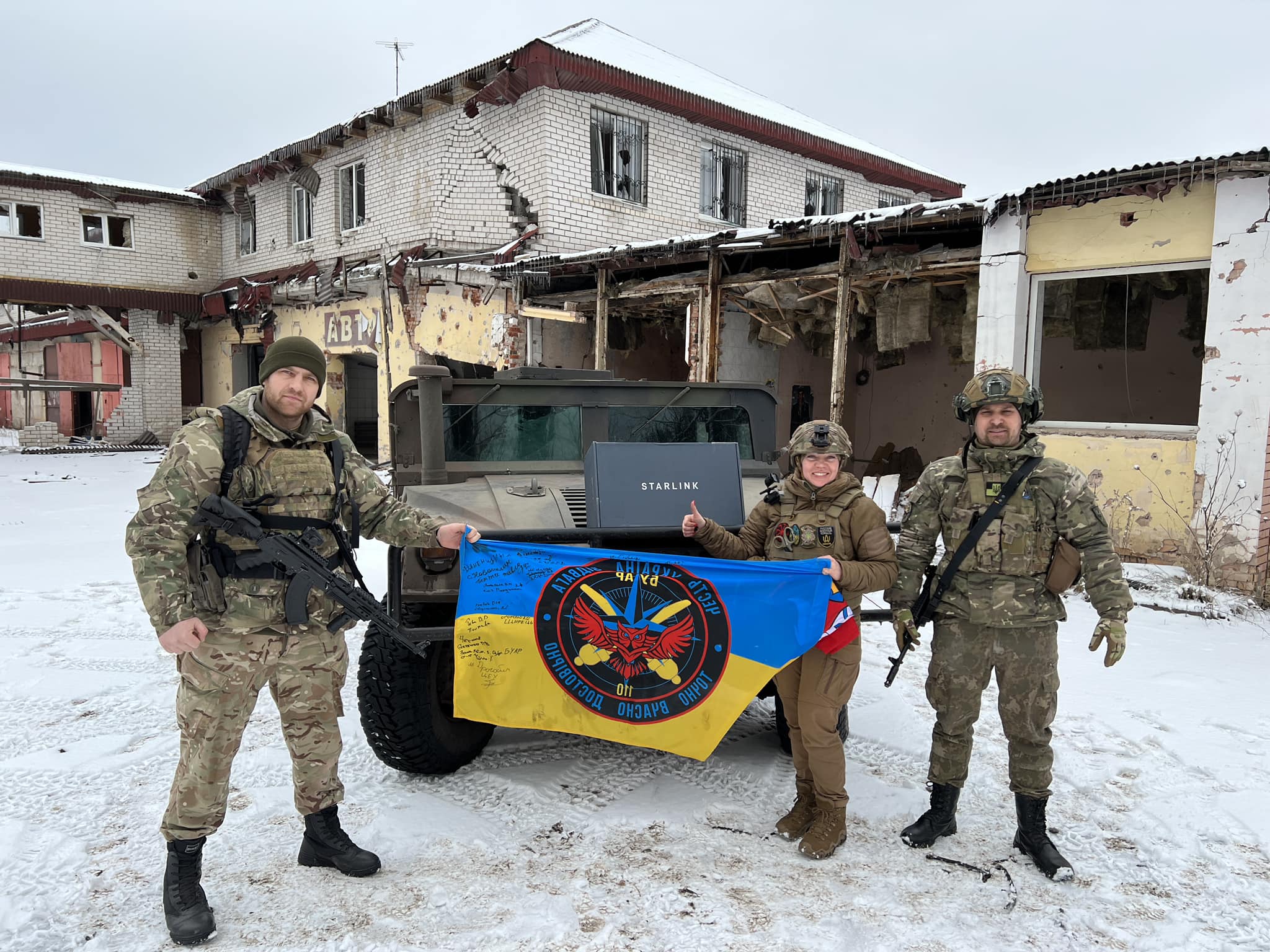
Photo: Fetsitsa's personal archive
Among the military artifacts, there was a place for a container from the russian flamethrower RPO-A Shmel. Ukrainian defenders won the flamethrower in the battle of Pisky in 2017. Later, the fighters signed the container and presented it to the volunteer. Within a few weeks, one of the defenders who handed over the trophy died. Fetsisia says:
"There are many such unknown soldiers who died. This is a huge loss. I don't know how we will recover from this. Fighters protect us so our families can live, work, and study. So for our part, we must do everything possible for our army to end the war."

Defend, treat and rescue: stories of women bringing Ukraine's victory closer

"How can you go somewhere everyone is fleeing from?": a story of a paramedic who saves the military and dreams of making clothes






